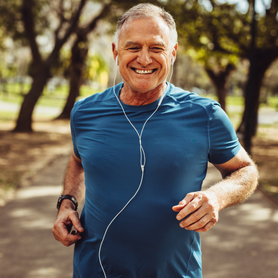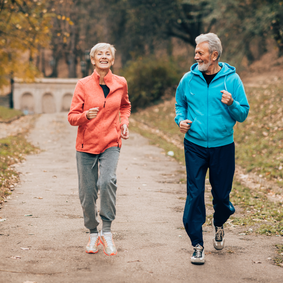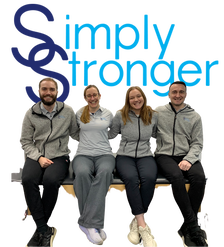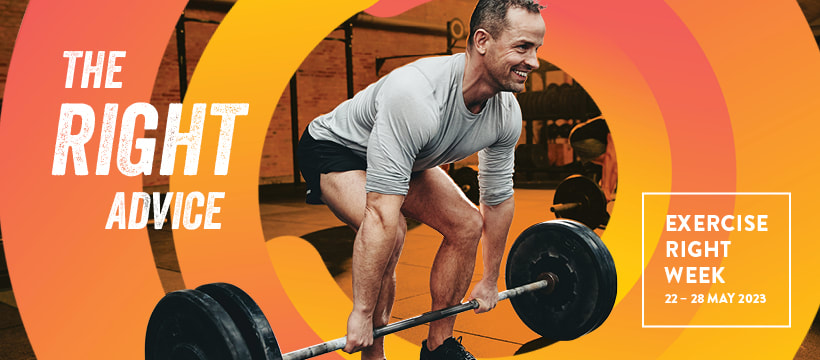|
We've all heard that exercise is good for your mental health, and the age-old wisdom behind this statement holds truer than ever. Beyond its well documented physical benefits, regular physical activity plays a vital role in supporting and enhancing our mental wellbeing. In this blog, we will delve into five essential ways that exercise positively impacts our mental health, offering you even more reasons to lace up those runners and get moving. So, if you need some motivation to prioritise your physical health and mental wellness, read on to discover the powerful connections between exercise and mental wellbeing.  1. Improves Mood One of the most immediate and noticeable benefits of exercise on mental health is its mood-boosting effects. When you engage in physical activity, your brain releases endorphins, which are often referred to as "feel good" hormones. These endorphins create a natural high, reducing stress and promoting a sense of happiness and relaxation. Regular exercise has been shown to alleviate symptoms of depression and anxiety, making it a powerful tool for combating mood disorders.  2. Stimulates Creative and Flexible Thinking Exercise is not only about physical fitness; it's also a workout for your brain. When you're active, your brain experiences increased blood flow and oxygen, which enhances cognitive function. This boost in brainpower can lead to more creative and flexible thinking. Whether you're tackling a complex problem at work or simply looking for creative inspiration, exercise can help you think outside the box and find new solutions to challenges.  3. Protects Cognitive Function As we age, cognitive decline becomes a concern for many. However, regular exercise can serve as a powerful defense mechanism against age-related cognitive decline. Studies have shown that physical activity is associated with a reduced risk of conditions like Alzheimer's disease and dementia. This protective effect is due to exercise's ability to promote neuroplasticity, the brain's ability to adapt and reorganise itself, and the creation of new brain cells.  4. Aids in Decision Making and Planning The ability to make sound decisions and plan effectively is a fundamental aspect of good mental health. Exercise can significantly enhance your cognitive function, allowing you to make better choices and organise your thoughts more effectively. This is particularly important in high-stress situations where clear thinking and efficient decision-making are crucial. Regular exercise can give you the mental edge you need to tackle life's challenges.  5. Boosts Memory and Recall If you find yourself frequently forgetting names, appointments, or where you left your keys, exercise might be the solution you've been looking for. Physical activity has a positive impact on memory and recall. It stimulates the production of neurotrophic factors, which are essential for long-term memory. Furthermore, exercise increases the size of the hippocampus, a brain region associated with memory and learning. By engaging in regular exercise, you can sharpen your memory and boost your ability to recall information. Incorporating exercise into your daily routine is a powerful and natural way to enhance your mental health. Not only does it improve your mood, stimulate creative thinking, and enhance and protect cognitive function, but it also aids in decision making, planning, and memory recall. The benefits of exercise extend far beyond physical fitness, making it an essential component of a holistic approach to mental wellbeing. So, the next time you're feeling stressed or struggling with a complex problem, consider taking a break and going for a run, walk, or weights session – your mind will thank you.
Feeling inspired to embrace exercise and start feeling the positive effects on your mental health as well as your physical. Come on down to Simply Stronger, where our exercise physiologists can help you to build an exercise plan that works for you. We work with you, taking a holistic approach to your health. Looking at not only what exercises will help to support your physical and mental wellbeing, but also how best to use this exercise to fit into your life. We are all unique and deserve an approach that support you as a whole person.
1 Comment
Challenging the concept of "Bad Posture"
Posture has been a topic of concern for generations, with many people associating it with health problems and physical discomfort. We have been taught to believe that "bad posture" can lead to a myriad of issues, from back pain to decreased lung capacity. However, it's time to question whether the concept of "bad posture" is an accurate representation of how our bodies function. In this blog, we'll explore the notion that there is no such thing as bad posture and how adopting a more holistic perspective on our body mechanics can lead to a healthier and more accepting approach to our physical selves. The Myth of "Bad Posture" The term "bad posture" implies that there is a correct, one-size-fits-all way of holding our bodies, but this idea oversimplifies the complexity of human anatomy. Each person's body is unique, and what might be considered "bad posture" for one individual could be completely normal and functional for another. Our bodies are incredibly adaptable and more resilient than we think. They can adjust to various positions and movements, and adapt to the load they are exposed to. Rather than focusing on the rigid idea of "good or bad posture," it is essential to understand that our bodies are designed to move and change their alignment based on our activities and needs. Embracing Diversity in Postures The human body is not meant to be static or fixed in a single position. Our ancestors, who led a more active and varied lifestyle, did not have the luxury of ergonomically designed chairs or desks. They moved, squatted, and knelt in different postures throughout the day, which helped them build strength, flexibility, and resilience. Today, we should strive to embrace this diversity of movement in our daily lives. Instead of obsessing over maintaining a supposedly "ideal posture," we should focus on incorporating more movement and variety into our routines. Whether it's through strength training, stretching, or regular breaks from sitting, giving our bodies the opportunity to experience different postures can promote a healthier musculoskeletal system. Comfortable and Capable Posture Instead of thinking about our posture as good or bad we should consider
You can begin by paying attention to how your body feels during various activities, this can help you recognise when we need to shift positions or take breaks. Holding certain postures for extended times is simply a fact of modern life. For some of us this can feel quite comfortable, for other however it can be tiring and lead to discomfort. In out next blog post we will explore six exercises to help you unwind a static posture. So make sure you're following us on Facebook and Instagram to keep up with all our tips over the month of August as we discuss posture all month long. Exercise Physiology – More than just exercise prescription:
As exercise physiologists we often get asked many different questions about our profession both from clients, members of the public and even our family and friends. I can't tell you how many times I have been asked by my family "What exactly is an Exercise Physiologist?". Other than a long and confusing title, I like to explain that an EP is someone who uses exercise prescription to improve an individual's health, wellbeing and function. Like specialised personal training. That's the short version, the elevator pitch. With Exercise Right Week coming up this month, what better time to dive a little deeper and discuss what makes us as EPs different from other health professionals like PTs and physios, and what you can expect from seeing an EP at Simply Stronger. Getting to know you We take the time to get to know our clients, we want to know what makes them tick. By getting to know the ins and outs of our clients we can better understand the things they like about exercise, and the things they don't. We can figure out what impacts their ability to exercise both in a positive and negative way and then use this information to build a more personalised and achievable exercise plan. Sometimes our clients will have blocks they don't even realize that is limiting their activity. By obtaining as much information in the initial assessment as we can, we then tailor their plan to suite all of their needs. Extensive exercise knowledge Something that differentiates us from other health professionals is our extensive knowledge around exercise. Within our studies and training we focus deeply on how exercise can be prescribed , but also how it can be modified and changed to suite everyone’s needs. This means that any exercise can be changed to better fit the individual that walks in the door. At Simply Stronger you will often here us say "everything is modifiable" and it's true. We constantly tweak and adapt exercises to subtly or sometimes not so subtly change the goal and subsequent outcome of the exercise. This while used every day in face to face sessions, has also proven to be enormously beneficial when developing home exercise programs, travel programs and gym programs with various equipment. The key to success When you receive an exercise plan from us, it will involve all the specific details of your individualised exercise prescription. Explaining what exercises to complete, when and how, I think we can all agree is vital. However, the key to your success is understanding why. Why this exercise, why this prescription, what will this exercise do for you and your health? We provide you with this education because when you have the context of why, you are so much more likely to complete your program. Without the why it has no context and no meaning, so why would you do it. As exercise physiologists we also focus on a more holistic approach to our treatment and services. By doing this, we ensure that we understand what drives our clients to complete their exercises, while also having a true awareness of the challenges they face when it comes to completing exercise. We work together with our clients to develop goals that feel achievable and realistic to you, our clients. As one of our clients recently stated “It’s the small and achievable goals that become habits”. Over the years this client has been attending Simply Stronger, she has found our consistent messaging and education has empowered her to both see and understand her progress. We hope this gives you a little more insight to what an EP is and what we do for our clients. We would love it if you shared this with your friends because let's be honest, most people don't know who we are either. |
AuthorSimply Stronger - here to make exercise simple. Understanding why you should exercise is a giant step towards wanting to exercise. Archives
April 2024
Categories
All
|



 RSS Feed
RSS Feed